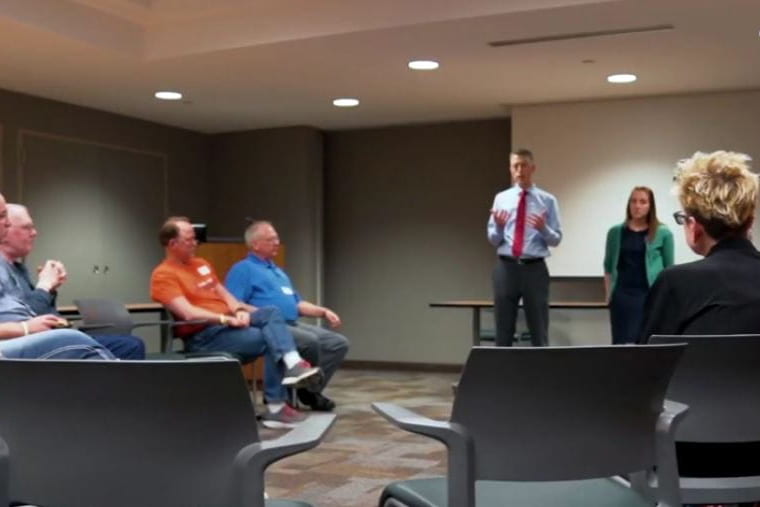The Head & Neck Cancer Survivorship Clinic meets the third Wednesday of each month, 6:00-7:00PM, in a large conference room at the Center for Advanced Medicine. You might think these meetings would be rather somber given the nature of this disease. You would be wrong.
The patients, which number 15-20 on any given evening, are remarkably upbeat. They joke around. A lot. As they relate their individual battles with cancer, laughter is the most common sound. This meeting is a celebration – a celebration of coping, acceptance, of moving forward, but also a celebration of winning.
Attendance at these meetings seems to proclaim a victory of sorts over their battle, and this time together is obviously cherished. Jim, a survivor of two cancers, was recently hospitalized here for a heart attack. He convinced his nurses to let him leave his hospital room in cardiac care to attend the survivors clinic. It means that much to share with others and to help others.
The Survivorship Clinic, run by Physician’s Assistant Melissa Portell, provides survivors with increased access to healthcare resources and healthcare providers to offer surveillance for cancer recurrence and management of treatment-related side effects. A guest presenter each month offers expertise on a topic related to head and neck cancer.
“As head and neck cancer survivors, most patients have long-term side effects from their treatment that require ongoing attention,” says Dr. Jason Rich, physician sponsor of the survivorship clinic. “This can include difficulty eating, neck pain and stiffness, lymphedema (swelling of the neck), deterioration of the jawbone, cancer recurrence, radiation related second cancers, financial challenges from health care costs, changes in appearance, depression/anxiety, and strain on relationships due to the above mentioned issues.”
Jason Rich, MD, opens discussion at Survivorship ClinicHead and neck cancer is unique among all other cancer sites in that both the tumor as well as the treatment significantly impact aspects of patients’ lives that are necessary for activities that contribute to our “humanness.” These aspects include the ability to eat and swallow, speech and communication, breathing, and facial appearance. Treatment for most HNC require a combination of surgery, radiation therapy, and chemotherapy.
As one patient said, “Support groups are magical.” The head and neck survivorship clinic is one of the most popular at Siteman Cancer Center. Perhaps Jan, a survivor of tonsil cancer, said it best: “Doctors are great, but only you all know what I’m going through.”
